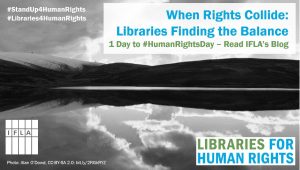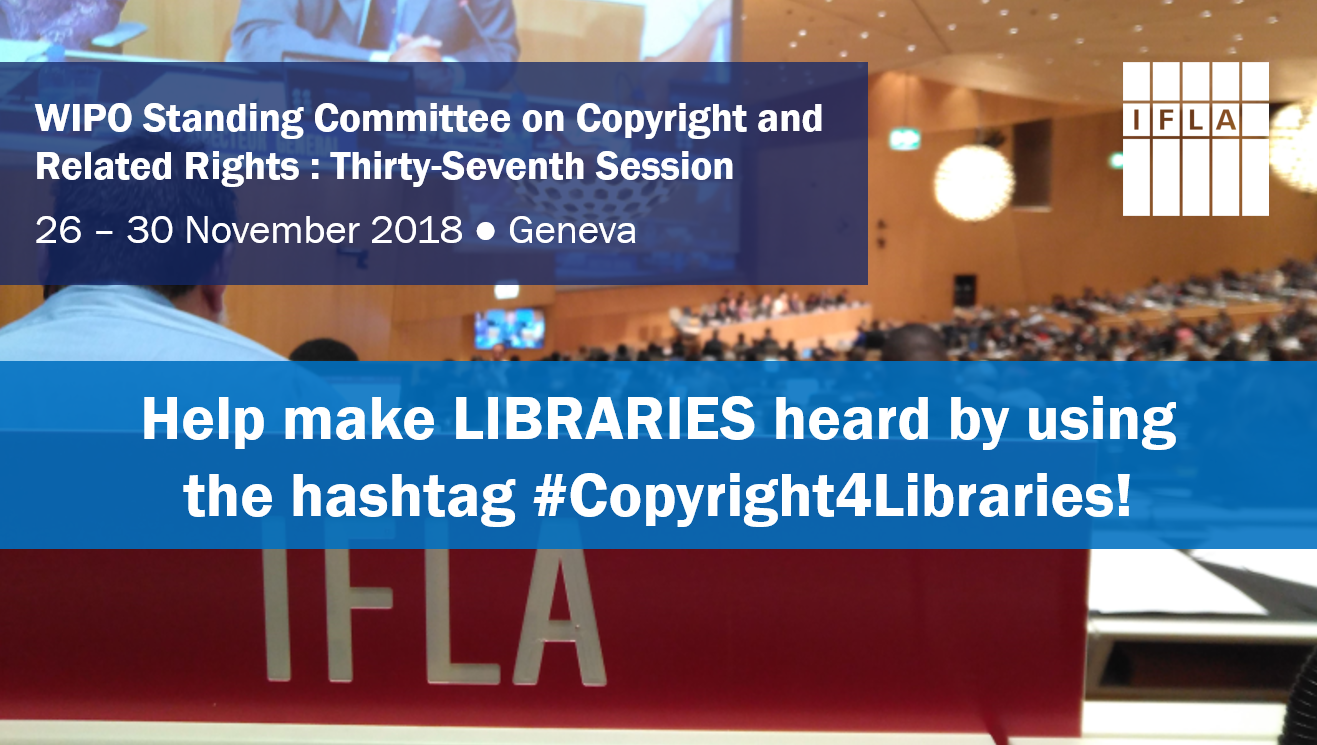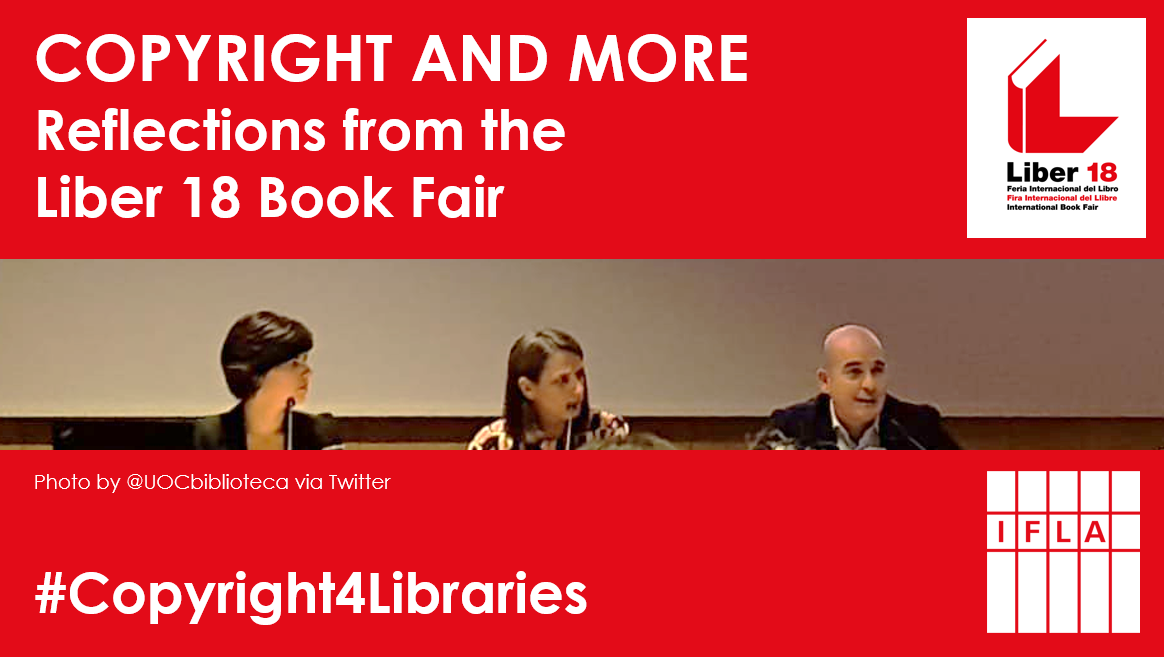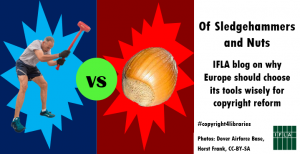After years of discussion, the South African copyright amendment Bill was adopted by the South African National Assembly on 5 November. The process is not completely over, as the Bill will now be sent to the National Council of Provinces for concurrence, which is likely to happen early 2019.
As it currently stands, there are very positive provisions for libraries and other cultural heritage institutions, some of which are particularly positive. There are significant improvements such as the adoption of fair use, strong exceptions and limitations for libraries, archives, museums, galleries and educational institutions, provisions on Marrakesh and orphan works and a national open access policy.
These very positive results would not have been possible without the constant advocacy work by many librarians in the country, among which Denise Nicholson, expert advisor of the Copyright and Other Legal Matters Committee at IFLA. They engage with decision makers to insist on the need for adequate provisions for libraries to fulfill their missions, and to bring down unfair allegations against these provisions.
Here’s an overview of the most relevant provisions for libraries, archives, museums and research and education institutions:
- Fair use: non-exhaustive list of uses (research, criticism, reporting current events, teaching, comment, parody, preservation, etc.) and four relevant factors (nature of the work, amount and substantiality of the part of the work affected by the act, purpose and character of the use and substitution effect of the act upon the potential market for the work)
- General exceptions for libraries, archives, museums and galleries, for non-commercial purposes:
- to lend a work in a tangible media
- to provide temporary access to a work in an intangible format accessed lawfully, to a user or to another institution
- to undertake preservation and web archiving (copies for back-up and preservation of works in the collection, and preservation of works in publicly accessible websites)
- to combine the preservation exception with making the work available when it has been withdrawn from public access after having been communicated to the public
- to get copies from other institutions for incomplete works
- to format-shift
- to make copies when permission from the copyright owner cannot be obtained
- to make copies to lend them to other institutions for exhibition
- to supply documents
- a limitation of liability for any library, archive museum or gallery employee working within the scope of his or her duties
*none of these provisions limit the fair use provision
- Marrakesh provision, allowing the making and supplying of accessible format copies to a person with a disability (or a person who serves him or her), including across borders, with no commercial availability check and no remuneration provision. A compensatory sum of money is deposited in a particular account and can be collected by the copyright owner at any time, but there is also a process allowing the authorised entity to recover the amount
- Contract override provision applicable to all the provisions in the act
- Licenses for orphan works. Before use, there is a requirement to publish the intention to register the work as orphan in certain sources, followed by an application to a government body, which will grant a non-exclusive license if the procedure has been duly followed
- Specific exceptions from copyright protection applicable to all works, among which:
- Quotation (up to an extent “justified by the purpose”)
- Use of illustrations in publications, broadcast, sound or visual record for the purpose of teaching (up to an extent “justified by the purpose”)
- Translation of works for non-commercial purposes and limited to specific uses (personal, educational, …)
- A temporary reproduction and adaptation exception, for transient or incidental copies or adaptations of a work that are an “integral and essential part of a technical process”
- Reproduction exceptions for non-commercial educational and academic activities, including:
- Making copies of works for the purposes of educational and academic activities
- Including these in course packs (by educational institutions) both in physical and virtual learning and research environments
- when there is no license available to incorporate the whole or a substantial part of a work, this will fall under the exception
- Reproducing a whole textbook if the work is orphan, out of commerce or out of print
- Incorporating portions of works in an assignment, portfolio, thesis or a dissertation for submission, personal use, library deposit or institutional repository (by a person receiving instruction)
- A national open access policy: the author of any scientific work resulting of a research activity that received at least 50 per cent of its funding from the state has the right, despite granting the publisher or editor an exclusive right of use, to make the final manuscript version available open access.
 In the last of our series of blogs in the run up to Human Rights Day, we’re looking at situations where different human rights risk being in tension with each other. We argue that in a number of key areas of potential clash, the work, professionalism and ethics of librarians offer a valuable response.
In the last of our series of blogs in the run up to Human Rights Day, we’re looking at situations where different human rights risk being in tension with each other. We argue that in a number of key areas of potential clash, the work, professionalism and ethics of librarians offer a valuable response. 

 The European Parliament’s vote on the draft copyright directive next Wednesday is likely to be the last chance for transparent discussion on the substance of a reform that has been years in the making. It is also a last chance for libraries to reach out to and influence Members of the European Parliament.
The European Parliament’s vote on the draft copyright directive next Wednesday is likely to be the last chance for transparent discussion on the substance of a reform that has been years in the making. It is also a last chance for libraries to reach out to and influence Members of the European Parliament.